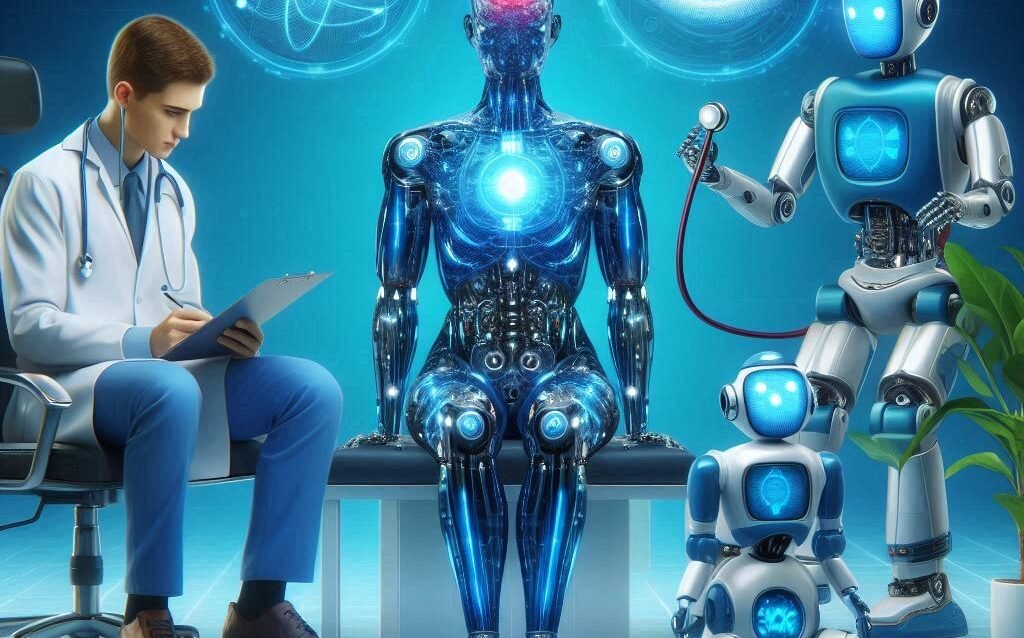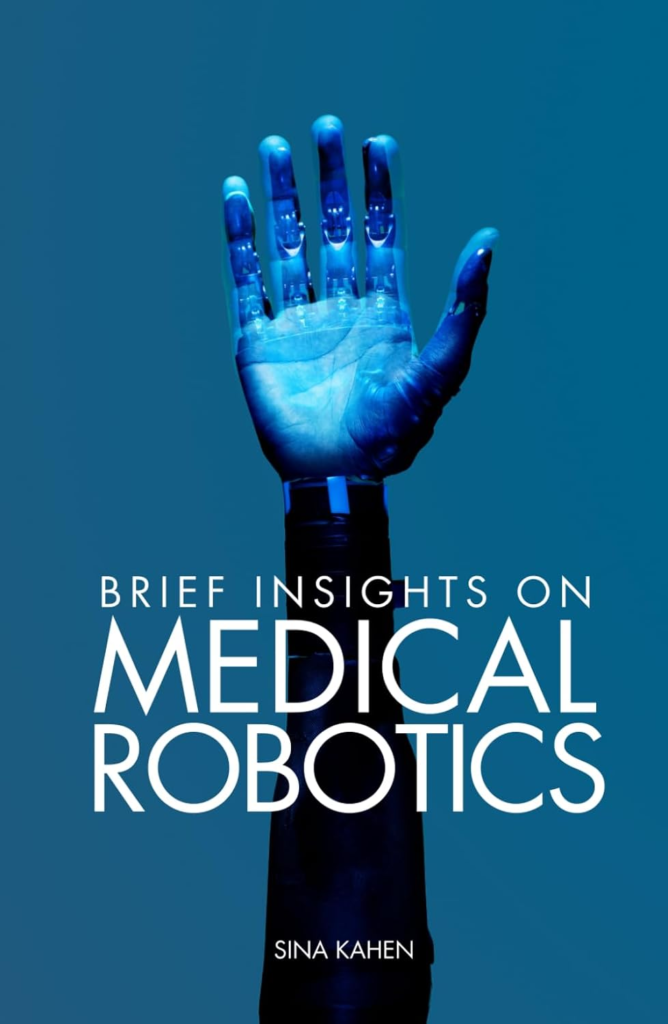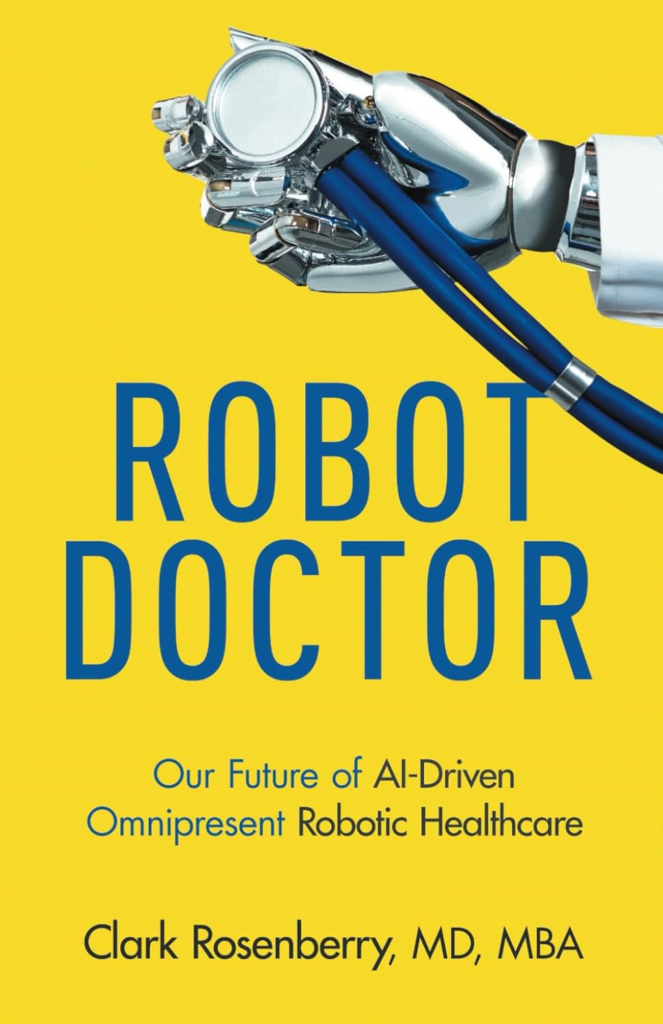Medical Robots and AI in Healthcare
The integration of medical robots and artificial intelligence (AI) in healthcare represents a transformative evolution in the medical field. As technology advances, the relevance of these automated systems in enhancing patient care and optimizing hospital operations becomes increasingly pronounced. Medical robots, ranging from surgical assistants to automated medication dispensers, have been designed to improve precision in various medical procedures, ensuring better outcomes and reducing the likelihood of human error.
Initially, the applications of robotics in medicine were limited, primarily focusing on surgical tasks. However, over time, the versatility of medical robots has expanded significantly, allowing for a broader array of functions, including rehabilitation, diagnostics, and patient monitoring. This evolution has been paralleled by the rapid development of AI, which utilizes complex algorithms and machine learning to analyze large volumes of patient data. AI’s ability to process and interpret medical information enables healthcare professionals to make more informed decisions, thereby improving patient outcomes.
The significance of smart healthcare cannot be overstated. By incorporating robotics and AI into everyday medical practices, hospitals and clinics can enhance operational efficiency, minimize costs, and improve access to quality care. For instance, AI-driven diagnostic tools can assist in early disease detection, allowing for timely interventions that can save lives. Furthermore, robots can facilitate remote consultations, thereby bridging geographical barriers and making healthcare accessible to underserved populations.
In conclusion, the emergence of medical robots and AI in healthcare has ushered in a new era of smart healthcare, characterized by enhanced efficiency, improved accuracy, and increased accessibility. As these technologies continue to advance, their role in transforming patient care and hospital operations will be critical in shaping the future of healthcare.
(Purchase today by clicking on the image)
Applications of Medical Robots and AI Technologies
The integration of medical robots and artificial intelligence (AI) technologies into healthcare is revolutionizing the practices and outcomes of modern medicine. One of the primary applications is surgical robotics, which has transformed the landscape of complex surgical procedures. Surgical robots, such as the da Vinci Surgical System, provide surgeons with enhanced precision and control, leading to minimally invasive surgeries. Patients benefit from shorter recovery times, reduced pain, and lower rates of complications, making this technology invaluable in hospitals around the globe.
In addition to surgical applications, robotic rehabilitation is another promising area where robots assist patients in their recovery process. Devices like exoskeletons enable individuals with mobility impairments to regain movement, significantly enhancing their rehabilitation experience. By providing structured and consistent support, these robots not only augment physical therapy but also boost patient motivation, often leading to improved outcomes. Rehabilitation robots can work alongside healthcare professionals to offer personalized therapy that adapts to individual patient needs.
AI diagnostics represent another critical application, leveraging machine learning algorithms to analyze medical data and identify potential health issues with remarkable accuracy. For example, AI systems can assist physicians in interpreting medical imaging, reducing reliance on human interpretation and increasing diagnostic speed. These tools have proven effective in early detection of diseases such as cancer, ultimately resulting in better prognoses and enhanced patient care.
Telemedicine also demonstrates the potential of combining AI and robotic technologies to improve healthcare access. Robots equipped with telepresence capabilities enable healthcare providers to interact with patients remotely, making consultations more flexible. This technology not only broadens access for patients in remote areas but also streamlines hospital workflows, allowing healthcare professionals to allocate resources more efficiently. Overall, the ongoing advancements in medical robots and AI technologies hold great promise for enhancing patient outcomes and transforming healthcare delivery.
Challenges and Considerations in Implementing Smart Healthcare
The integration of medical robots and artificial intelligence (AI) in healthcare presents various challenges and considerations that must be addressed to ensure successful implementation. One of the primary hurdles is regulatory compliance. Governments and healthcare authorities are tasked with establishing guidelines that encompass the use of AI and robotic systems in clinical settings. The rapidly evolving landscape of technology can often outpace regulatory processes, creating gaps that may lead to inconsistent quality or safety standards.
Data privacy is another significant concern in the delivery of smart healthcare solutions. With the use of AI systems, vast amounts of patient data are collected, analyzed, and stored. Ensuring the confidentiality and security of sensitive health information is paramount. Breaches not only compromise patient data but also erode trust in the healthcare system as a whole. Consequently, healthcare providers must implement robust cybersecurity measures and adhere to data protection regulations, such as the Health Insurance Portability and Accountability Act (HIPAA) in the United States.
Moreover, the successful deployment of medical robots and AI requires extensive training for healthcare personnel. Medical staff must be proficient in utilizing these advanced technologies to improve patient outcomes effectively. This necessitates significant investment in training programs, which may divert resources from other critical areas of patient care. Additionally, medical professionals may need to adjust to new workflows that involve collaboration with AI systems, potentially leading to initial resistance or discomfort.
Ethical implications surrounding AI deployment are also profound. Concerns regarding biases in AI algorithms, which can arise from unrepresentative training data, pose a risk of misdiagnosis or uneven patient care. Maintaining patient trust is essential for the acceptance of these technologies; hence, transparency and accountability in AI decision-making processes become crucial. Lastly, the potential for job displacement among healthcare workers due to automation raises questions about the future of the workforce in the clinical environment. As robots and AI systems take on tasks traditionally performed by humans, workforce retraining and upskilling become necessary to mitigate unemployment risks.
The Future of Medical Robots and AI in Healthcare
The future of medical robots and artificial intelligence (AI) in healthcare is poised to bring remarkable advancements that will transform patient care and operational efficiency. As technology progresses, these innovations are likely to enhance precision in medical procedures and improve diagnostic capabilities. For instance, sophisticated robotic systems powered by AI could assist surgeons in performing complex surgeries with greater accuracy, reducing recovery times and improving patient outcomes.
Emerging applications of AI in personalized medicine represent another significant opportunity in the healthcare landscape. By analyzing vast amounts of patient data, machine learning algorithms can identify individual health risks and recommend tailored treatment plans. This level of customization ensures that medications and therapies are optimized for each patient’s unique genetic makeup and lifestyle, fostering better health outcomes and increasing patient satisfaction.
Additionally, the collaboration between tech companies and healthcare institutions is crucial for ongoing research and innovation in this field. As partnerships become more common, shared knowledge and resources will propel the development of sophisticated medical robots and AI applications. This synergy will enable faster implementation of cutting-edge technologies in clinical settings, ensuring that healthcare providers can deliver the highest quality of care.
Furthermore, the integration of these technologies has the potential to improve healthcare accessibility. Remote robotic consultations and AI-driven health assessments can bridge the gap for patients in underserved areas, providing them with access to specialist services that were previously out of reach. The aim is not only to enhance service delivery but also to promote equitable health outcomes for diverse populations.
In conclusion, the future of medical robots and artificial intelligence in healthcare is bright. As technological advancements continue to evolve, they will play an integral role in shaping a smart healthcare system marked by efficiency, accessibility, and personalized patient care.
(Purchase today by clicking on the image)






